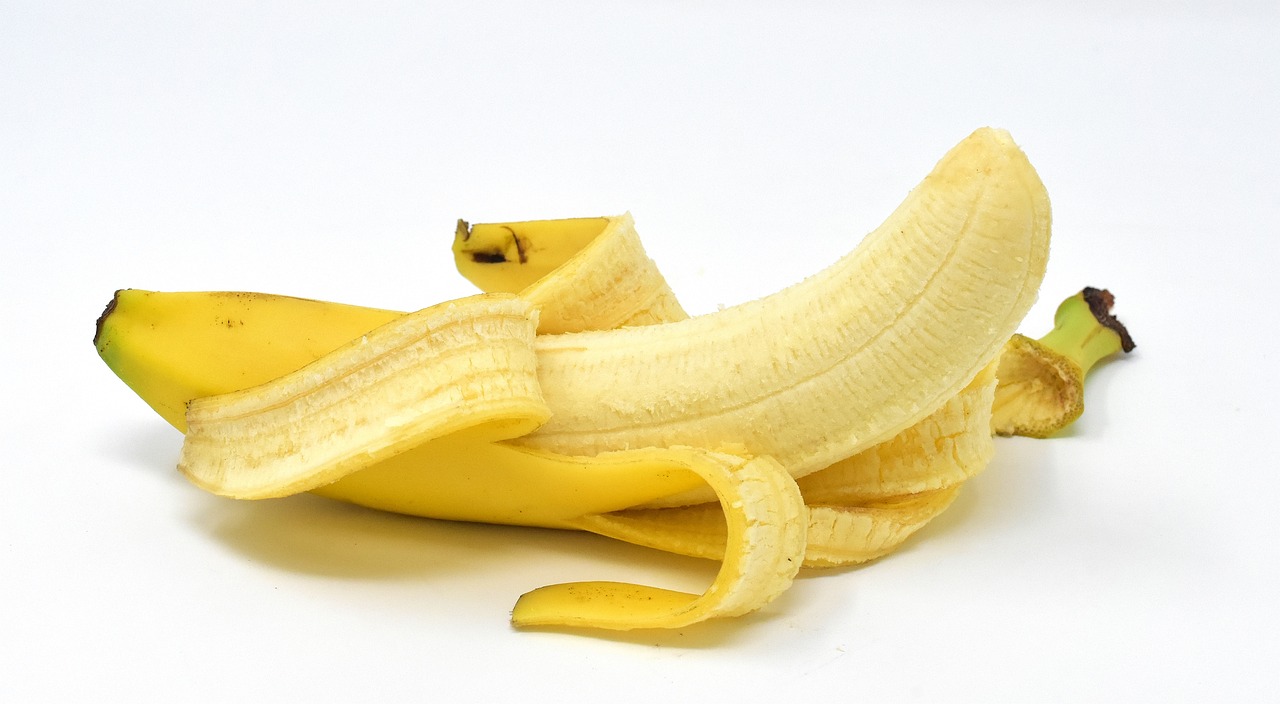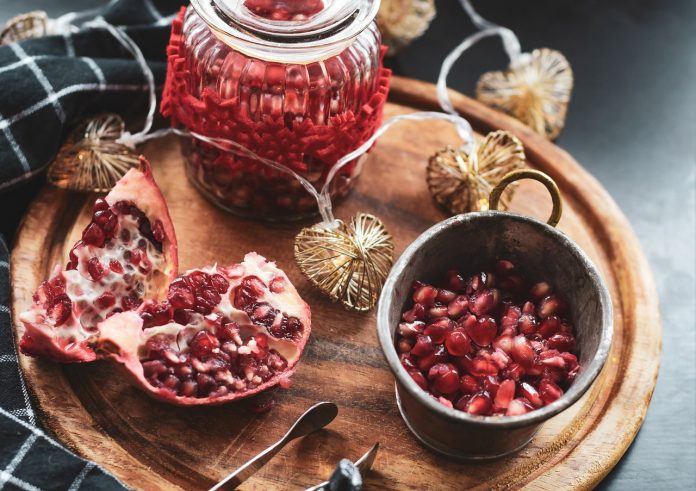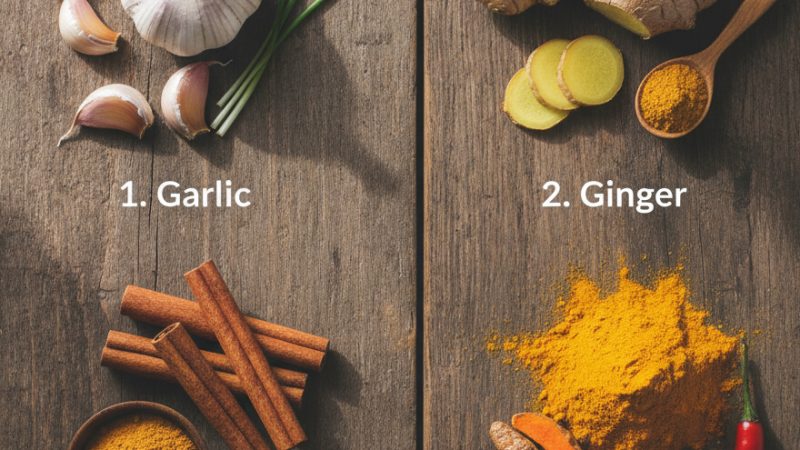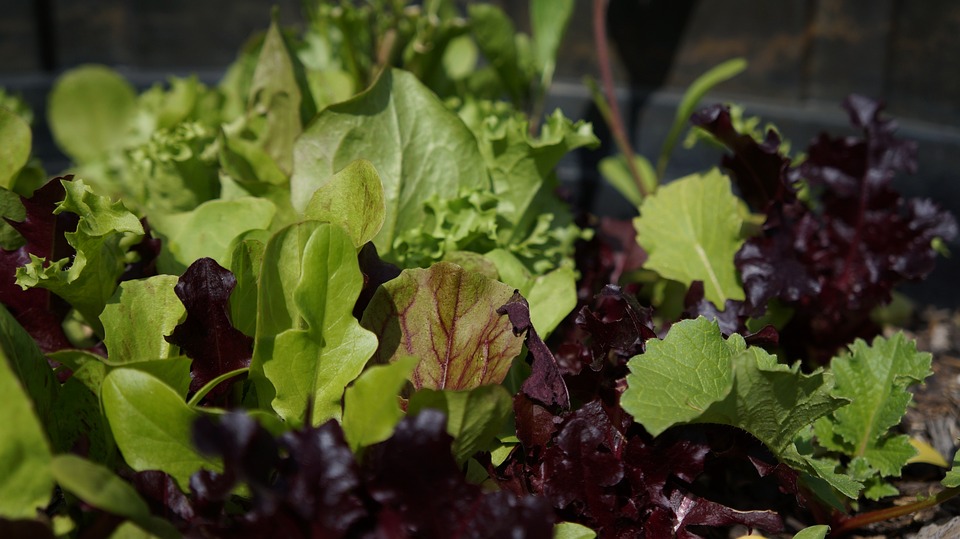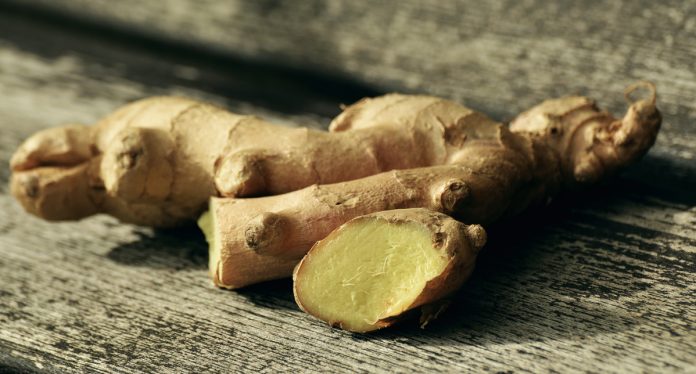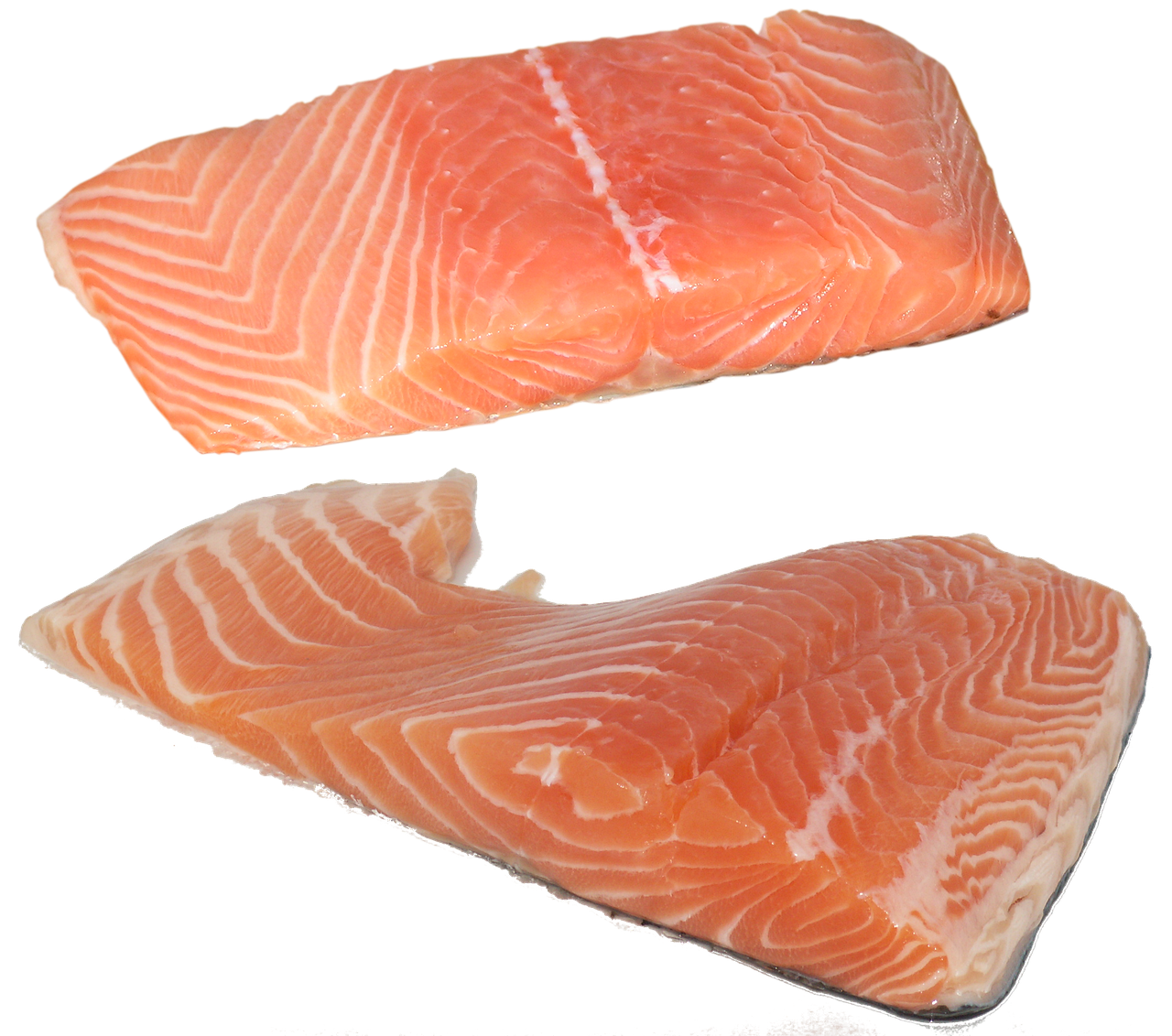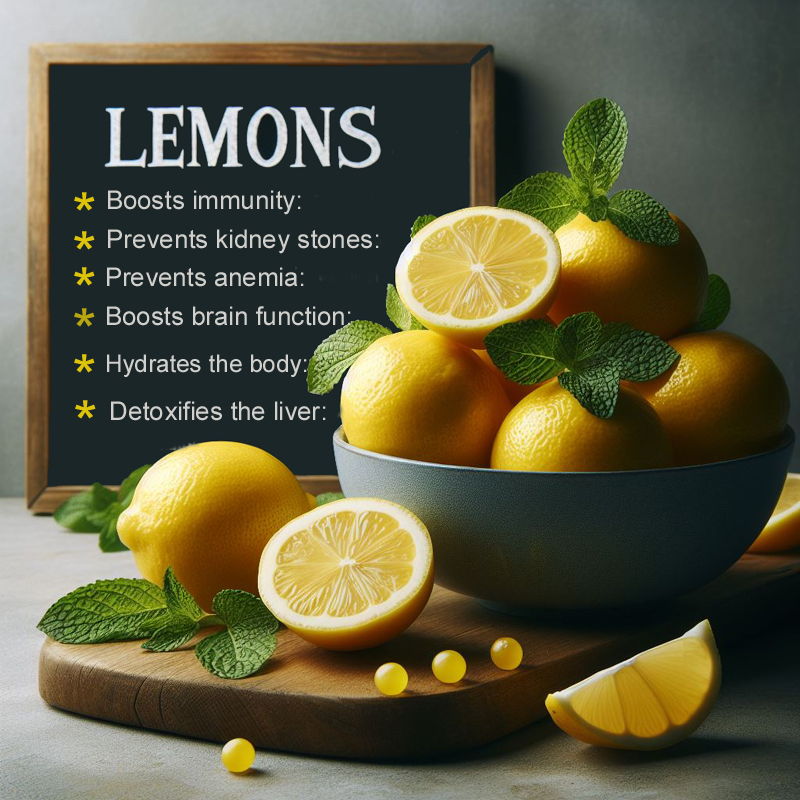Belly Up to The Juice Bar
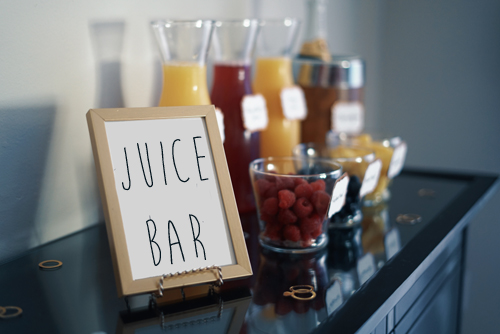
Juicing is an excellent way of getting the required servings of vegetables and fruits into your diet. There is a variety of fresh produce you can use and an endless number of combinations of juice so that everyone can find something that they like. If you don’t like to eat your veggies, juicing them is a good way to get the nutrients you need.
Juicing helps your body absorb the vitamins easily and faster than when your body naturally breaks down your food through chewing and digestion. With juicing every cell in your body is being nourished for optimum health. When I juice I literally feel tingly, like my body is awakened with energy and it tastes great.
The health benefits from eating raw fresh fruits and vegetables are incredible and juicing helps you gain those benefits. Digestive problems are a concern for many people. Juicing helps clean our digestive system and gives it time for rest and healing. Juicing helps reduce the toxin buildup in our bodies which has a negative impact on our health. Obtaining the nutrients from juicing increases heart and brain function and increases our immune system preventing illness. Green leafy vegetables contain chlorophyll which aids in healing wounds, cleanses our liver, helps prevent damage to our cells, increases our red blood cells and is very high in nutrients. The vitamins that we derive from fruits and vegetables contain antioxidants to help prevent artery plaque or increasing our bad cholesterol. The health benefits are so many because we are feeding our bodies what it needs to function and support its actions.
Here are just a few of the health problems that are helped by consuming vegetables:
- Carrots: skin, liver arthritis, bladder, asthma, cancer, heart, eyes, colon health
- Cabbage: heart, bladder, skin, ulcers, lung, fatigue, constipation
- Kale: arthritis, liver, circulation, skin, anemia, ulcers, heart, cataracts, stroke
- Cucumber: skin (acne, psoriasis, eczema), joints, hydration, kidney
- Celery: liver, insomnia, kidney, lung, constipation, diuretic
- Lettuces: liver, insomnia, anemia, constipation
- Radish: lung, sinus, skin, thyroid
- Turnip greens: joints, skin, circulation, lungs, liver, eyes
- Peppers red & green: circulation, skin, eyes, joints, heart
- Garlic: immune, skin, heart, antibiotic, cholesterol, kills bacteria & fungus
- Ginger: immune & digestive systems, colds/mucous
- Parsley: urinary, anemia, liver, skin, joints, circulation
- Mustard greens: bone health, muscle relaxant, asthma, menopause
- Spinach: liver, eyes, skin, kidneys, circulation, digestion, thyroid, heart
- Beet: circulation, skin, bladder, fatigue, kidneys, eyes
- Swiss chard: heart, bones, antioxidant, muscles, anemia
- Fennel: skin, blood, nausea
- Zucchini: bladder, hydration, kidneys, colon cleanser
- Wheatgrass: antioxidant, joints, fatigue, ulcers, hypoglycemia, liver, bone
- Tomato: heart, cholesterol, prostate, cancer,antioxidant, cardiovascular
I don’t juice a lot of fruit because of its high sugar content. I use it mostly to add sweetness and more vitamins to my vegetable juices. Listed are a few of the fruits I use and the problems that they can help:
- Apple: diabetes, cholesterol, antioxidants, tumors, viruses, bone health, heart, lungs
- Blueberries: heart, memory, constipation, blood sugar, antioxidants
- Grapes: antioxidants, arterial health, heart, blood flow, eyes, kidney stones
- Cantaloupe: eyes, cholesterol, blood pressure, immune system
- Citrus: heart, skin, scurvy, blood pressure, lungs, immune system, colon
- Mango: digestion, antioxidants, thyroid, memory
- Peaches: digestion, constipation, cancer, strokes
- Pineapple: bone health, colds, digestion, diarrhea
- Strawberries: heart, memory, calming effect, cancer
- Watermelon: cholesterol, blood pressure, prostate, stroke, kidneys
- Blackberries: joint health, arthritis, heart, blood pressure, immune
- Kiwi: anemia, dental health, heart, ulcer, immune
- Pears: sore throat, cholesterol, colon, fatigue, inflammation
- Raspberry: joints, skin, antioxidant
Those are just a few of the fruits and vegetables that you can juice, but these are my favorites. You can receive these health benefits whether you eat the produce whole or juice it, but to fit in all our daily requirements I find juicing helpful. Always wash your produce thoroughly. I peel my carrots and anything with a waxy skin that they put on to preserve the produce, but leave the skin on most everything else. I cut the peel off citrus fruits as they can be bitter. Buy the fruits and vegetables in their whole form. Buy leafy greens with their stems still on. Avoid buying prepackaged greens and processed (cut or shredded) carrots, celery, etc. I remember that one time I bought some shredded carrots because they were on sale. When I juiced those carrots I literally got no juice. They were nothing but dried up pieces of an orange vegetable. So always buy the freshest whole produce available and organic if possible. Some vegetables have a bitter taste or they might be something that you don’t like as well, so add in a small amount of fruit. An apple is my favorite fruit to add to my vegetable juices. Experiment with what tastes good to you and what your body tolerates. Here are some combination suggestions:
- carrot, celery, beet, spinach, apple ( this is my favorite and have daily)
- spinach, parsley, carrot, celery
- carrot, ginger, apple, celery
- carrot, celery, garlic, parsley
- apple, grape, lemon
- carrot, apple, beet
- beet, grape, apple, lemon
- tomato, spinach, red/green pepper, parsley
- carrot, beet, lemon, parsley, celery
- carrot, beet, cucumber, celery, pineapple, ginger, parsley
- apple, ginger, celery, parsley, lemon
- apple, beet, carrot, berries
- carrot, celery, cabbage
- lettuce, peppers, celery, cucumber
- tomato, carrot, cucumber, spinach, celery, cabbage, pepper
- spinach, cucumber, carrot
- celery, beet, cilantro, spinach
- carrot, spinach, lemon
- carrot, apple, cucumber
- spinach, cucumber, apple
- cucumber, spinach, celery, parsley, lemon
- kale, collard, cucumber, celery, carrot, tomato, apple, berries, lemon
Find your favorite combinations. Use what is in season and looks fresh. If your doctor has put you on dietary restrictions because of allergies or medication you are taking, then do not use those certain foods. Always consult your doctor if you are unsure.
Green juices are low in calories and sugar. Adding carrots and beets increases the sugar content. A fruit juice has the most sugar content ( lemons and limes are okay) and should be consumed sparingly, so just eat the whole fruit.
Homemade juices are using raw fruits and vegetables so they have more living enzymes. This helps the body digest our food easier for the nutrients that our cells use for energy. Store bought juices, even though they say “natural” are processed and contain preservatives and just aren’t as good for you as homemade. Fresh juice should be consumed as soon as it is made. If it is not possible to drink it right away or you want to take some with you for later then store it in an air tight container, preferably glass. Do not keep the juice for over 24 hours because the nutritional value, enzymes and taste have diminished.
There are three kinds of juicers:
- Masticating- this machines crushes or chews the food and retains more of the plant fiber.
- Triturating- the juice is compressed out of the food.
- Centrifugal-grinds the fruits and vegetables to extract the juice.
I have the Jack LaLanne Power Juicer Deluxe. I’ve had it for about six years. I love it and have no problems with it at all. As with any juicer, it is very important that you clean it thoroughly after each use to prevent bacteria and mold from developing. It does take a few minutes to clean it but I feel that the juice is so worth it. If you don’t know which one to buy (if you don’t already have one) ask your friends and family which one they like. They vary in price, but you don’t always have to buy the more expensive ones to get a good quality. I purchased mine online for around $100. Always read reviews to see if the one you are interested in is worth it. Read your juicers instructions to see how best to use and for more suggestions.
I hope that I have given you some inspiration and direction to start juicing. Juicing is very healthy only when it is combined with a regular healthy diet. The juice has very little protein and no fat, both of which is needed in our diet. If you are using juice for fasting or detox I suggest that you do it for only a few days at the most. Juicing will give you a big boost of energy, it does for me. Please share your stories on how juicing has improved your health and your favorite juice recipes.
The Author:
Hi my name is Dr. Kim Y. Branham. I strive to enhance my life by learning to have an energetic, abundant and vibrant lifestyle. Through my chiropractic education and practice I have learned so many things that I want to share with others.
Photo. Natasha Fernandez
Source: EA

